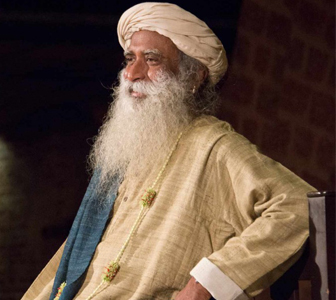The Story of Vemana

“If the goal was fixed, if there is no other way and that is the only thing, people would never think something was impossible. They would always be striving for the possibility. That is what a spiritual seeker should do.”
—Sadhguru
Sadhguru tells the story of a young boy called Vemana who became a great saint through his single-pointed persistence, illustrating the meaning of Adi Shankara’s words: “Nishchalatattve jeevanmukti.”
Sadhguru: There was a fabulous saint in Andhra Pradesh named Vemana. There is no home in Andhra Pradesh who would not have at least a little book about him. Though his name was something else, they called him Vemana. When he was a young boy, he was known to be an utter fool. He lived with his teacher who tried to teach him the basics of the alphabet, but though Vemana was already fifteen, he still could not grasp more than a few letters because he was supposed to be so dim-witted.
One day, the teacher had to go out for an important engagement. He went to have a bath in the river and told Vemana, “Hold my clothes in your hands until I finish my bath. Be careful not to keep them down in the mud.” After his bath was over, he called Vemana, who just dropped the clothes in the mud and went running to his teacher.
The teacher got exasperated with him, but the boy just looked at him blankly. So the teacher in a state of great frustration gave him a piece of chalk and said, “Sit here and on this rock, go on writing ‘Rama, Rama, Rama’ till I come back. I hope you will get something out of this at least.” He then left for his appointment.
The boy felt so bad that all his teacher’s efforts were going to waste upon him. He just sat there and wrote “Rama, Rama, Rama.” The chalk wore out, but he continued with his finger. The finger wore out and he bled profusely but he just went on writing “Rama, Rama, Rama.” In the evening, the teacher came and saw this boy still writing “Rama” with his finger completely gone. He picked up the boy and just hugged him. “What did I do to you?” he cried.
After that day, the boy grew into such a wonderful poet and lived as an enlightened being. He wrote hundreds of poems! If one has this kind of persistence, if he is completely focused in one direction, nothing can be denied to that human being.
This is what Shankara means when he says, “Nishchalatattve jeevanmukti.” This means if you have unwavering purpose, it doesn’t matter what the purpose is, you will be liberated. If there is no nishchalatattvam, there is no mukti; there will only be chaos. Nishchalatattvam is needed. Otherwise you will not transcend your limitations and the hurdles that come – every hurdle will look like an impossible mountain.
If the goal was fixed, if there is no other way and that is the only thing, people would never think something was impossible. They would always be striving for the possibility. That is what a spiritual seeker should do. That is the first and foremost thing that you must do – establish one steadfast point such that, this one thing is not changeable. If you do not compromise on this, the rest of life gets organized behind you, not in front of you as a hurdle. Life will organize behind you and will support you all the time. Your faculties, your energy, the whole world will get organized behind you because you have nishchalatattvam.
Editor’s Note: What does it really mean to know yourself? How does it feel to have no more questions about life – its meaning, its purpose, and its glaring inequalities? What does it really mean to be enlightened? Sadhguru explains karma, yoga and mukti or liberation in Enlightenment: What It Is. Download now.


